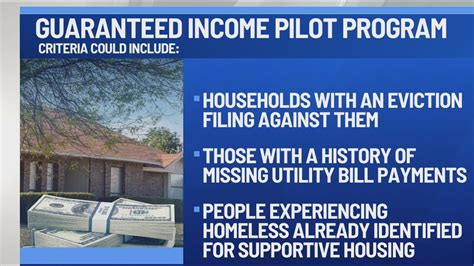By JOSHUA FECHTER
(TEXAS TRIBUNE) – Austin will be the first major Texas city to experiment with giving cash to low-income families to keep them housed as the cost of living skyrockets in the capital city.
Under a yearlong, $1 million pilot program that cleared a key Austin City Council vote Thursday, the city will send monthly checks of $1,000 to 85 needy households at risk of losing their homes — an attempt to insulate low-income residents from Austin’s increasingly expensive housing market and prevent more people from becoming homeless.
“We can find people moments before they end up on our streets that prevent them, divert them from being there,” Mayor Steve Adler said at a press conference Thursday morning. “That would be not only wonderful for them, it would be wise and smart for the taxpayers in the city of Austin because it will be a lot less expensive to divert someone from homelessness than to help them find a home once they’re on our streets.”
Eight Austin City Council members voted Thursday to establish the “guaranteed income” pilot program and contract with a California nonprofit to run it.
Austin joins at least 28 U.S. cities, like Los Angeles, Chicago and Pittsburgh, that have tried some form of guaranteed income. Locally, the idea came out of efforts to rework how the city tackles public safety in the wake of protests over police brutality in 2020.
In Texas, Houston Mayor Sylvester Turner and San Antonio Mayor Ron Nirenberg have also signaled their support for the idea, though those cities don’t yet have similar programs.
Austin officials are working out how exactly the program will work and which families will receive the money. Austinites who qualify won’t have restrictions on how they can spend the money — but the idea is that they’ll use it to pay household costs like rent, utilities, transportation and groceries.
City officials have floated some possibilities regarding who should qualify for help: residents who have an eviction case filed against them or have trouble paying their utility bills, as well as people already experiencing homelessness.
Ahead of Thursday’s vote, some council members voiced concerns about the relative lack of details about the program and questioned whether it was a good idea for Austin to use local tax dollars to fund the program, rather than letting the federal government or nonprofits take the lead.
“I believe that we do need to invest in people and their basic needs, but I’m not sure that this is the right way today,” council member Alison Alter said at Thursday’s meeting before voting against the measure.
Brion Oaks, the city’s chief equity officer, told city officials in a memo that the Urban Institute, a nonprofit think tank based in Washington, D.C., will help measure the program’s impact by looking at factors like participants’ financial stability, stress levels and overall wellness over the course of receiving the funds.
Preliminary findings from a similar pilot program showed some promising results. UpTogether, the California nonprofit that will run the Austin program, ran a separate guaranteed income program funded by private dollars in Austin and Georgetown that ended in March, the nonprofit said in a statement Thursday. That program gave 173 families $1,000 a month for a year, and the nonprofit said participants used the money for expenses like rent and mortgage payments, child care, fuel and groceries.
Some were able to boost their savings, more than half of recipients slashed their debt by 75% and more than a third eliminated their household debt, the nonprofit said.
According to Austin’s Ending Community Homelessness Coalition, the city has more than 3,100 people experiencing homelessness. A local ban on most evictions during the pandemic kept the number of eviction case fillings low compared with other major Texas cities, but that number has exploded since the ban ended last year.
Guaranteed income may be one way to put a dent in those problems, proponents said.
“This is about preventing displacement, preventing eviction and ensuring that our families are able to stay in their home, that we have that stability,” council member Vanessa Fuentes said.
Disclosure: Steve Adler, a former Texas Tribune board chair, has been a financial supporter of The Texas Tribune, a nonprofit, nonpartisan news organization that is funded in part by donations from members, foundations and corporate sponsors. Financial supporters play no role in the Tribune’s journalism. Find a complete list of them here.
Read More From The PatriotAmerican
Help mission-driven journalism flourish in Texas. The Texas Tribune relies on reader support to continue delivering news that informs Texans and engages with them. Donate now to join as a Texas Tribune member. Plus, give monthly or yearly now through May 5 and you’ll help unlock a $10K match. Give and double your impact today.


Well maybe if you didn’t raise the property tax by 30 to 50% you won’t have to help them! They are not looking at what caused the people to lose their home or apartments they are just throwing money at it. Food, Gas, Property Tax, Utilities, Health Care and Inflation in general are contributing to people not being able to stay in or pay for their mortgage or rent. All this is because of the Dem-socialist policies and agenda.
This is nothing but socialism and will be ripe with waste and fraud!